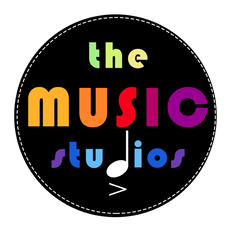|
by Khoo Hui Ling
Opening up to music, which is Part 2 of What It Means To Have A Lifelong Friendship with Music, is very much like opening up to a friend. It is about connecting emotionally with music. It is about seeking to learn and understand first before making any judgement. The former requires humility, while the latter, curiosity. Leon Fleisher, a pianist greatly revered not just for his commanding musicianship but his gentle soul, is a living embodiment of humility and curiosity. For those who may not be so acquainted with the pianist, in his mid-thirties and at the height of his performing career, Mr. Fleisher lost the use of his right hand due to focal dystonia. Resilience saw him through thirty or so years of experimental treatment, as well as a spectacular career as a teacher and conductor. Half his lifetime later in his seventies, he regained the use of his right hand and cut a CD Two Hands. Not too long ago, he celebrated his 90th birthday, performing in major music festivals. In the article “Lessons I Learned From My Dad” written for the New York classical music radio station WQXR’s blog, Julian Fleisher calls his dad, Leon Fleisher, a “badass”. I think for many of us, we can only aspire to be that bad of an ass. It is an easy and humorous read which you can explore here: https://wqxr.org/story/lessons-learned-dad-leon-fleisher-piano/.
0 Comments
By Goh Ruyin
Humans learn every day. Our brain is constantly processing old and new information, and making connections between them. As we gain experience, more information and activities that we engage in become familiar to us, and it takes less and less effort to understand and engage in these activities. The more familiar the task, the higher the chance of running on auto-pilot. We go into auto-pilot when we are doing very familiar tasks like brushing our teeth, but we are hyper-aware of our senses and actions when we are experiencing something new and novel, like skydiving in my case. When we visit our favourite restaurant but order the one-time special, we feel comfortable in the same environment, but titillate our taste buds with new flavours from an unfamiliar dish. All these activities and experiences fall into what I like to call the spectrum of consciousness. The amount of “consciousness” we experience is directly correlated with the amount of new information being fed into our brains. by Khoo Hui Ling
When starting The Music Studios, the dedicated team of teachers and I unanimously agreed that a lifelong friendship with music was the best gift a music teacher could give to a student. The tagline does have a nice ring to it, but what does it really entail? Since The Music Studios is a recent development and this is the very first blog post, I thought it meaningful to share some ideas about that. To all music teachers and parents, I hope this will provoke some thought into the worth behind sending children for music lessons. I’ve found “The Little Prince” by Antoine de Saint-Exupery to be an enlightening allegorical read that has inspired many facets of my life. It is about a little prince from another planet, and his encounters of adult life from a young child’s innocent perspective. The little prince learns many lessons from his love and pining for a rose from his home planet, which leads to my first point below. PART 1 - FALLING IN LOVE WITH MUSIC “People where you live," the little prince said, "grow five thousand roses in one garden... yet they don't find what they're looking for... They don't find it," I answered. And yet what they're looking for could be found in a single rose, or a little water..." Of course," I answered. And the little prince added, "But eyes are blind. You have to look with the heart.” |
AuthorsKhoo Hui Ling Archives
January 2020
Categories
All
|

